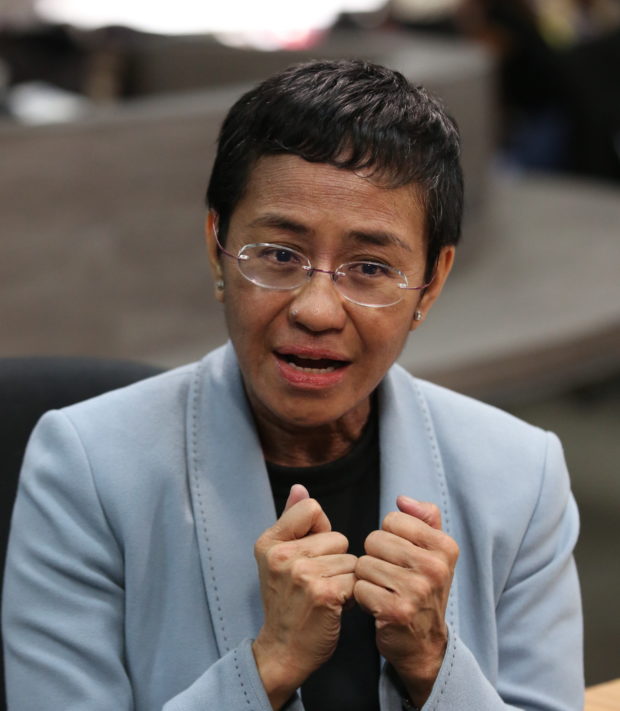
Journalist Maria Ressa. INQUIRER FILE PHOTO/LYN RILLON
MANILA, Philippines — Rappler CEO and Nobel Laureate Maria Ressa and former researcher Reynaldo Santos Jr. have asked the Court of Appeals (CA) to reconsider its decision affirming their cyber libel conviction.
In its 32-page motion for reconsideration filed July 22 but made public Tuesday, Ressa and Santos, through the Free Legal Assistance Group (FLAG), said the CA violated their rights when it extended the prescription period for cyber libel and applied it retroactively against the two.
“This Court erred in not recognizing that every doubt should be indulged in favor of appellants Santos Jr. and Ressa,” read the motion for reconsideration.
It explained that a fundamental principle in criminal law states that the case shall be resolved in favor of the accused in case of doubt.
“This rule commands courts such as this one that when the law admits of several competing interpretations, the interpretation most favorable to the accused should apply,” it said.
A prescriptive period is a period set under the law within which a complaint can be filed. For example, under the Revised Penal Code, prescription period for libel is one year. However, the Manila Court that convicted both Ressa and Santos said the prescription should be 12 years.
But the Court of Appeals said under Article 90 of the Revised Penal Code (RPC), the prescription shall be 15 years. The CA also increased the penalty imposed against Ressa and Santos Jr. from six months and a day to six years in jail to six months and a day up to six years, eight months and 20 days.
FLAG said that while the Cybercrime Prevention Act aggravates penalties when ‘computer systems are used, “it intentionally remained silent on the prescriptive period of libel.”
“For this Court to entangle the penalty attached to libel with its prescriptive period goes far beyond judicial interpretation because Article 90 of the RPC is clear and requires no interpretation: libel or other similar offenses, regardless of penalty, shall prescribe in one year,” read the motion.
They added that the CA erred in relying on the Tolentino vs. People case when it issued its ruling against Ressa and Santos Jr. because the case was resolved through an unsigned resolution and, under the Supreme Court’s Internal Rules, it has no doctrinal value.
Rappler has been fighting at least a dozen court cases, including the shutdown order issued by the Securities and Exchange Commission (SEC).

